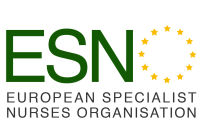Background
From 2000 onwards our attention has focused on viral and other infectious diseases, and especially on vaccination. Nurses play a crucial part in the vaccination process. Not only are they often in direct contact with patients, nurses also can inform, calm, and educate the general public regarding vaccination. ESNO is a strong advocate and promoter of nursing knowledge and competencies related to infectious disease transmission and vaccination. Mapping nurses’ preferences, needs and knowledge can further contribute to shaping policy, generate support for policy measures and help address vaccination hesitancy. Therefore, the aim of this study is to learn about nurses’ personal motivation related to influenza vaccination and the Corona-virus vaccination, and how this relates to the professional activity and (training) needs of nurses in Europe.
Following the ESNO Survey to Nurses in Europe on Vaccination Uptake in 2020, this publication reports results from administering the survey (with additional items) in 2022.
Results
- Of 103 respondents, most were from Italy and worked as nurse specialist. The results of the survey show that 63.5% of respondents got vaccinated for influenza in 2021. Almost all respondents (97.9%) were vaccinated for COVID-19 in 2021.
- The majority of respondents was (very) likely to get vaccinated for influenza (69.1%) and COVID-19 (81.2%) in 2022.
- For the majority of respondents the preferred policy is to leave influenza vaccination voluntary for other healthcare workers (63.2%), physicians (61.6%) and for nurses (58.5%). A smaller majority agrees to leave influenza vaccination voluntary for chronically ill patients (55.3%), the elderly (54.8%) and immunosuppressed patients (50.5%).
- In contrast, for the majority of respondents the preferred policy on COVID-19 vaccination is to mandate it for nurses (67.1%) , physicians (65.5%), and other healthcare workers (65.1%). For a smaller majority, the preferred policy is to mandate it for the elderly (60.7%), chronically ill patients (60.0%), and immunosuppressed patients (59.5%).
- Years of experience is statistically significant associated with preferred vaccination policy for all healthcare professionals (p = 0.026, p = 0.043, p = 0.031). More years of professional experience are associated with a preference for mandatory influenza vaccination policy.
- Furthermore, most respondents assesses their knowledge about vaccines, mRNA-COVID-19 vaccines, the immune system and pathogens on a medium level (68.2%; 62.4%; 61.2% and 60.0% respectively).
- A higher level of self-assessed knowledge about mRNA COVID vaccines is statistically significant associated with the likelihood to get vaccinated for COVID-19 (p < 0.001).
- In response to the COVID-19 pandemic, most respondents provided critical care or administered vaccination. To perform better in responding to future pandemics, the most needed type of institutional support was continuous free nursing education.
See the full report here: 2022_ESNO-Vaccination_Final.pdf
